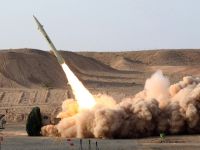Efforts to agree on a fair free trade system for poor and rich countries could face a setback this week at ministerial World Trade Organization (WTO) discussions in Nairobi, if the Doha round of talks that was started 14 years ago breaks down.
What was the aim of the Doha round?
In November 2001, industrialized, emerging and developing countries agreed in Qatar's capital that they would work to liberalize global trade. Customs barriers were to be removed and markets were to be opened to everyone. Developing countries were to be supported so that they could profit from trade and escape from poverty. However, the Doha process seems to have hit a dead end.
Has there been no progress at all over the past 14 years?
The WTO members, currently 162 countries, have found agreement on parts of the ambitious Doha agenda. In 2013, they closed a deal to simplify customs bureaucracy around the world, which would result in significantly lower costs for exporters and importers. However, the agreement has not come into force because 51 WTO countries have yet to ratify it.
Is there any hope for the Doha process?
The United States effectively declared it dead ahead of the Nairobi conference. The world's biggest economy is calling for new approaches. Large emerging countries such as China, India or Brazil want to continue the Doha round, no matter what it takes.
Why do emerging economies hold on to the talks?
They want to keep their status as developing countries within WTO, enabling them to profit from special trade conditions reserved for poorer economies. They and most of the developing countries want to keep negotiating until all the development issues on the Doha agenda have been addressed.
Why are rich countries opposed to this approach?
The US, the European Union and others argue that global trade has changed since 2001. Many once poor countries have turned into significant players, for example in the markets for electronics, alternative energy technology or cars. This includes South Korea and China.
Could Nairobi yield any real results?
There might be agreements in some areas, such as implementing an agreement on around 200 IT products. The WTO says this could greatly reduce costs for tariffs and for storing merchandise during customs procedures. In addition, WTO ministers are expected to extend measures that help poor countries import medicines and produce generic version of brand-name drugs.
What is the most contentious issue?
An agreement on scrapping government subsidies for domestic farming sectors is not within sight. The US wants all countries to open up their agricultural markets and to end government support for food prices and the farming industry. However, development organizations charge that the US and the EU continue to protect their farmer from global competition.
Is there no chance for a compromise?
The EU, Brazil, Argentina and a number of other developing countries have come up with a possible compromise that aims to reduce subsidies over the long term. It proposes to scrap government support for exports.
Is this a promising approach?
The EU's export subsidies for the farming sector do not play a significant economic role. Ending them would be a mostly symbolic gesture.








